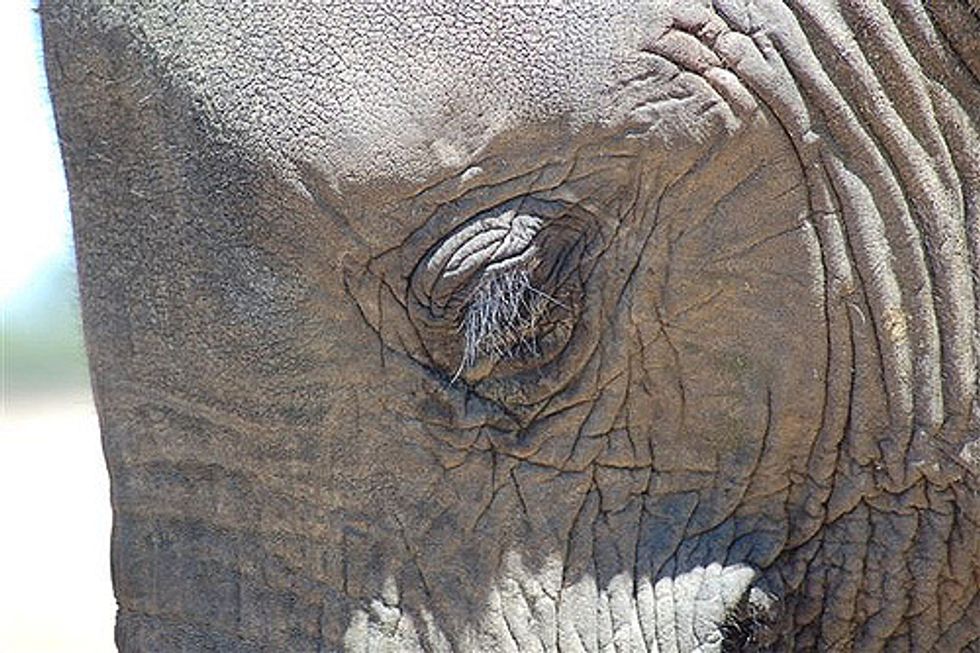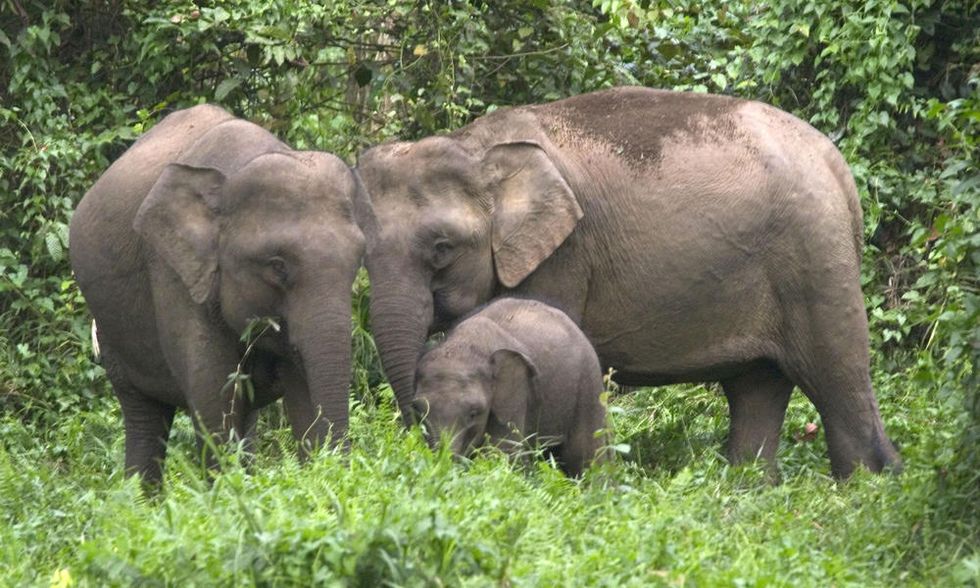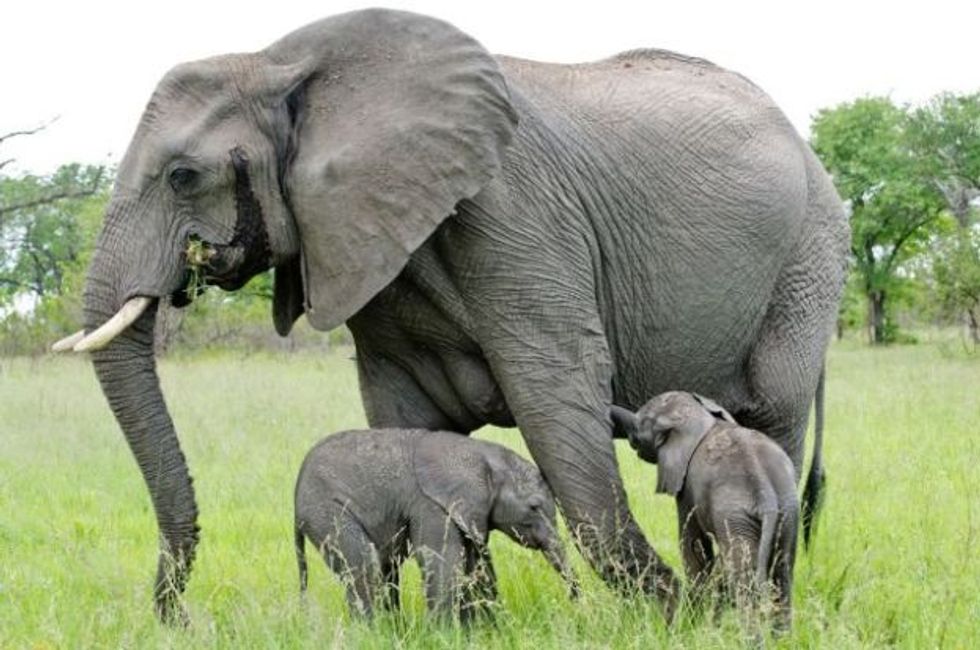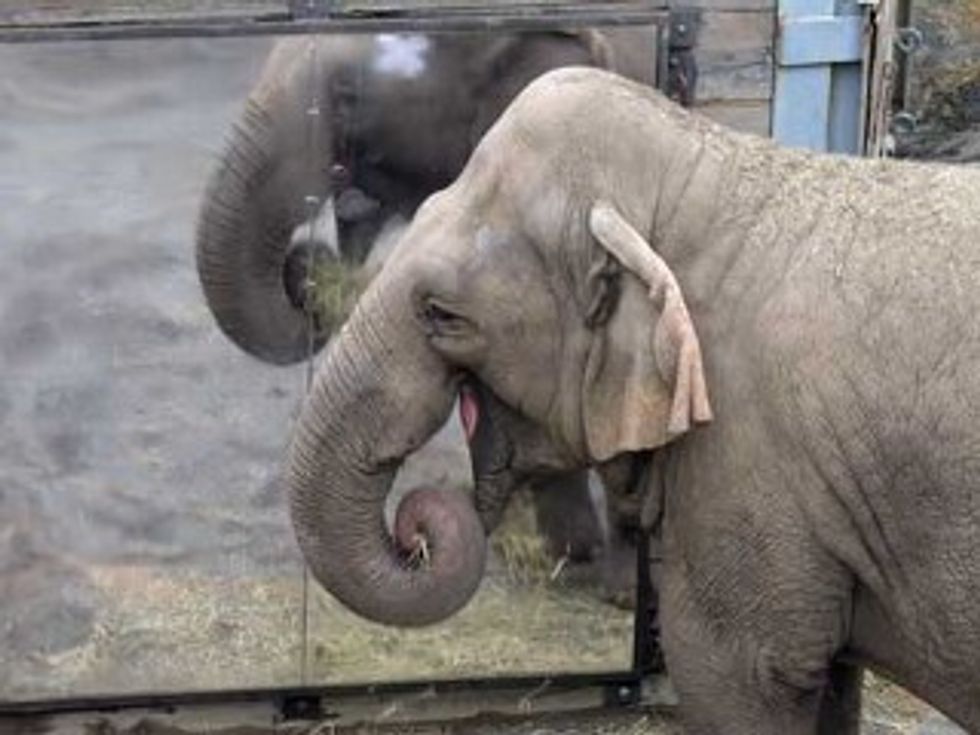I was reading an edition of the Smithsonian magazine the other day, exploring the pages and losing myself in that beautiful pseudo-intellectual space of browsing a magazine. As I finished my journey, I skipped the last page, reading questions that readers had sent in to the mag and the editor (or author's) responses. The first question asked if humans were the only beings to cry to show emotion, to which the magazine responded affirmatively. This isn't true! I then lost the space that I had forged for myself in reading an educational magazine- I, a sophomore in college, knowing more than the senior curator of the Smithsonian's National Zoo? Impossible! And yet it stands, although my area of expertise is very limited; I could not correct the Smithsonian magazine on any subject but fun facts about elephants. Here are some.
1. Elephants are the only other creature on Earth (aside from humans) that will cry to show emotion
Well, probably. In an effort to avoid the personification of animals and to prevent hard science from being skewed by the projection of emotion onto beings that cannot be proven to have these emotions, we can be pretty certain elephants cry for a reason. Most animals "cry"- their eyes produce water to keep the eyeball well lubricated and functioning well. However, the situations in which an elephant's eyeball makes extra water are those where, as humans, we can empathize with the elephant being in a particularly sad situation. Source
2. They will go out of their way to not damage property
Okay, I don't have a source for this one. But I remember look at the cutest video of this elephant who comes across a fence, and he is super careful to step around it even though he's in a hurry (as he trots away as soon as he crosses the barrier). For a creature of that size, who could easily power through and break down a fence that is loosely constructed by a village somewhere in Africa, the elephant instead is courteous enough? Conscious enough? to understand that it can do damage to the barrier, and chooses to not wreck or destroy it. Pretty freaking cool.
3. Elephants will "bury" their dead
Because most operate under the assumption that elephants feel emotion (see the crying bullet above), it is actually pretty understood that when a member of an elephant's family dies, it will go into mourning. If a calf doesn't make it, the mother may stay with the baby for days, and elephants will often cover the bodies of past members with leaves and twigs just after death, as a type of burial. They have even been know to do this to people whose bodies have been found dead, or maybe just sleeping! Source.
4. Mothers are pregnant for 22 months
Elephants are pretty gosh darn big; around 6 to 12 tons, depending on the age of the 'phant and the specific type. It takes a long time to grow big things, I presume, so a baby elephant has to chill out inside it's momma for almost two years to be sure it's done cooking and ready to face the world. When elephants are born, they weigh about 200 pounds! That's a little over 23 gallons of milk-- can you imagine carrying that from the grocery store to your car in one go?
5. The mirror test
One of the ways that we humans like to test other animal's intelligence is by having them undergo a mirror test. The way that the test is carried out can change, but the one specifically done for elephants in 2006 involved a mirror (obviously) and some white paint. Researchers painted a white "X" on the forehead of three elephants, then left them to experience a mirror. One of the elephants was able to understand that it was a reflection that she was seeing, exemplified in how she reached up to touch her own forehead's "X"s instead of her reflection's on the surface of the mirror. This is a big deal! It implies a higher thinking brain and hints at empathetic thinking as well. Read more here.
5.5 . Painting
This point is listed as 5.5 because it relates to the mirror test: both reflect (ba-dum-tis) the idea that an elephant is aware of itself as a being and a body that takes up space in a certain way. They have a self-image that is fairly correct, and they can recognize how they must appear to others given how other elephants appear to them.
Elephants are super cool, y'all. They are smart, they are kind, they are important. Find ways to support elephants; there are lots of companies out there that donate portions of their revenue to wildlife reserves and the like, as long as you take the time to find them. Learn about opportunities to get involved! Learn about elephants in general! Thank you.























